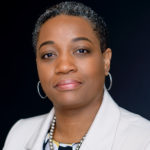 I was reminded recently of the poignant words of theologian Chance the Rapper. If you don’t know who he is, Google him.
I was reminded recently of the poignant words of theologian Chance the Rapper. If you don’t know who he is, Google him.
“I speak to God in public,” Chancelor Johnathon Bennett says on “Blessings (Reprise),” a track on his acclaimed 2016 mixtape Coloring Book. That’s a mouthful in six short words, and worth thinking about for those of us who profess faith in a man who made it his business to speak to God in public — all the time.
Chance isn’t talking about wandering around babbling to anyone who will listen about some end-of-times prophecy centered on heaven and hell. To the contrary.
The Millennial sage who has set Chicago and the world on fire is saying clearly to those with ears to hear that discourse about faith and justice and humanity belongs in the public milieu in the here and now. Chance — a young African-American male — is a public theologian whose pulpit is his music, his art, his giveback.
As I thought about those words — I speak to God in public — I had to ask myself when and where am I speaking boldly and prophetically about faith and justice, pushing the world around me to fully examine its complicity in maintaining systems of power and privilege that do repeated harm to bodies and psyches unable to protect themselves.
I, we, must speak to God in public, even though fear, risk, sacrifice and the potential loss of power abound.
As a single African-American woman whose economic survival is contingent upon majority run institutions, I make decisions regularly about whether to speak up or keep silent based on my level of fear and the amount of risk to my emotional well-being. And, I have white brothers and sisters who consciously and unconsciously struggle with what their lives might be like if they no longer lead, but instead take direction from those society has told them are inferior.
We are not alone. Yet I am challenged, even prodded, to think and live differently. I hope you are too. In a recent episode of the podcast Can These Bones, the Rev. Dr. Yolanda Pierce says, “To be a public intellectual is to allow myself to actually be vulnerable in public, to talk about my faith, to talk about the work that I do.”
“We need more public voices who are claiming their faith, who are unapologetically black, unapologetically Christian, and willing to say there is a different way,” she says.
There is a different way, and we of all hues and persuasions are called to model it.
This is not new behavior, and on the precipice of the 50th anniversary of the assassination of the Rev. Dr. Martin Luther King Jr., we are reminded that public proclamation and pressure are critical to changing institutions and systems, even in the face of great risk and death.
“We will have to repent in this generation not merely for the vitriolic words and actions of the bad people but for the appalling silence of the good people,” King said in his 1963 Letter from Birmingham City Jail.
“We must come to see that human progress never rolls in on wheels of inevitability. It comes through the tireless efforts and persistent work of men [and women] willing to be coworkers with God, and without this hard work time itself becomes an ally of the forces of social stagnation.”
We who claim to be co-laborers with Christ must speak to God in public in our still-segregated and homophobic churches; on our jobs where we pat ourselves on the back for having a few “others” to diversify our mix; in our neighborhoods where subversive redlining is thick and gentrification is deemed hip; and in all the settings where oppressors rush to reconciliation before acknowledging past and present occurrences of severe trauma.
There is no singular way to speak, and I challenge you to diligently work and find the most effective platform for you. Chance, who has a generation mesmerized and the establishment on notice, has found his. And in doing so, he has become a catalyst for others who might not ever have thought it possible.
Where is your public square and are you anchored as a herald in it? My prayer is that you — that we — find and proclaim. Let it be so!
